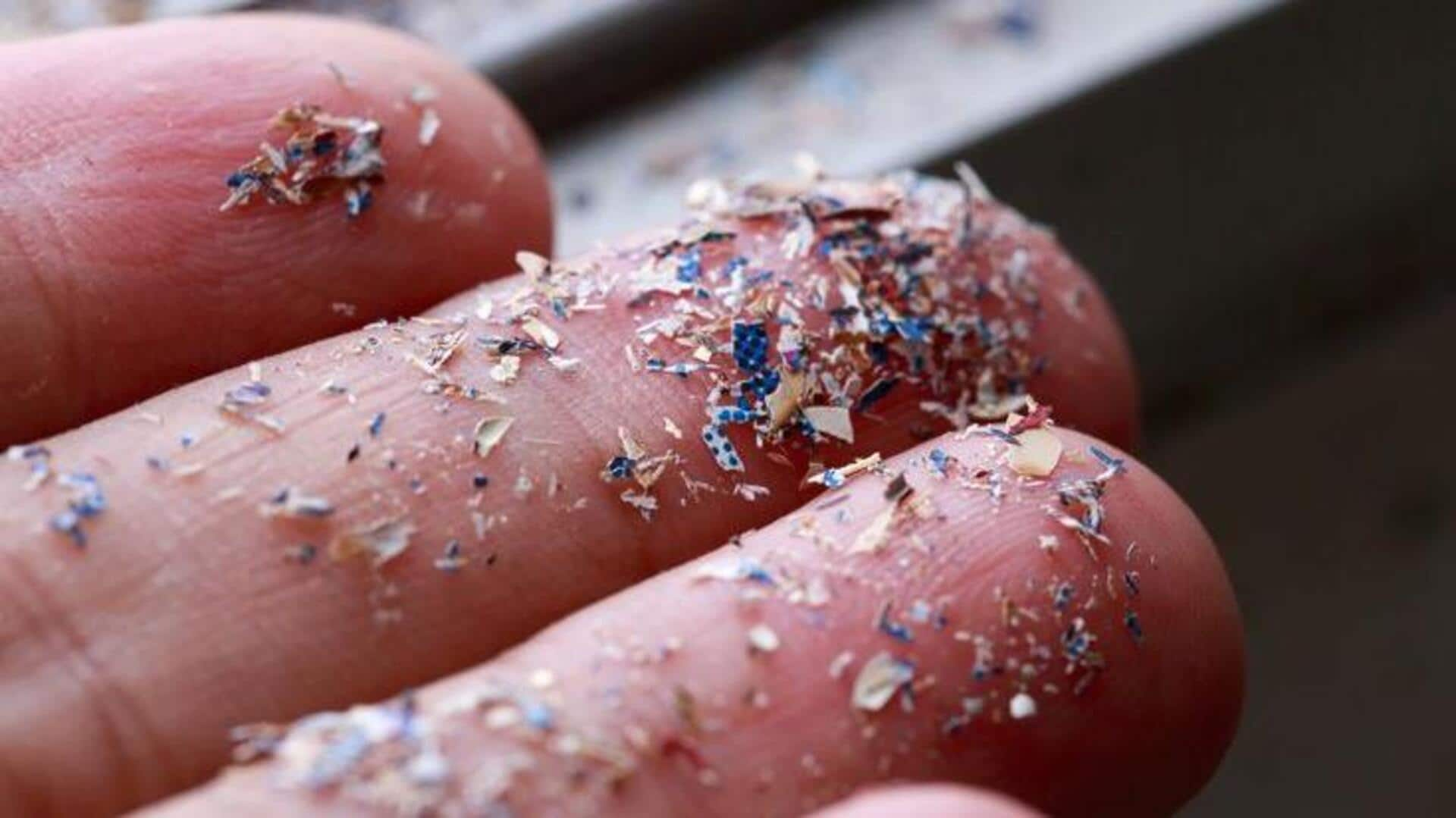
'Alarming': Microplastics found in human ovary fluid for 1st time
What's the story
For the first time, microplastics have been found in human ovarian follicular fluid, raising fears of their effect on women's fertility. The peer-reviewed study, published in Ecotoxicology and Environmental Safety, looked at 18 women undergoing assisted reproductive treatment at a fertility clinic in Salerno, Italy. Of the 18, microplastics were found in the follicular fluid, which provides essential nutrients and biochemical signals for developing eggs, of 14 participants.
Reproductive health
Microplastics impact on fertility
The study's authors wrote that the introduction of microplastics into ovarian fluid could potentially impact fertility, hormonal balance, and overall reproductive health. "This discovery should serve as an important warning signal about the invasiveness of these emerging contaminants in the female reproductive system," said Luigi Montano, a researcher at the University of Rome and lead author of the study. He described their findings as "very alarming."
Ubiquity
Microplastics are present in the environment
In recent years, microplastics have also been discovered from the top of Mt. Everest to the bottom of the Mariana Trench. Experts believe food is a major exposure route, as recent studies have found microplastics in all tested meat and produce products. These minuscule particles can carry any number of 16,000 plastic chemicals, including highly toxic compounds like PFAS, bisphenol, and phthalates linked to cancer, neurotoxicity, hormone disruption or developmental toxicity.
Body impact
Microplastics found throughout the human body
Montano's current research has also found microplastics in human urine and semen. He believes these substances are responsible for falling sperm counts and overall sperm quality. "We have proven this decline, especially in areas where pollution is bad," Montano said. While men are more vulnerable to the toxic effects of microplastics, Montano believes women could also be affected. Animal studies have associated microplastics with ovarian dysfunction and health issues like reduced oocyte maturation and lower fertilization capacity.
Chemical risks
Microplastics as 'trojan horse' for toxic chemicals
Montano warns that bisphenol, phthalates, PFAS, and other highly toxic chemicals use microplastics as a "trojan horse" to enter the body and ovaries. These substances are already known for disrupting hormones and harming women's reproductive health. Xiaozhong Yu from the University of New Mexico, who studies microplastics, acknowledged the significance of this finding but emphasized more research is needed to determine the dose and level of exposure at which adverse effects begin to occur.